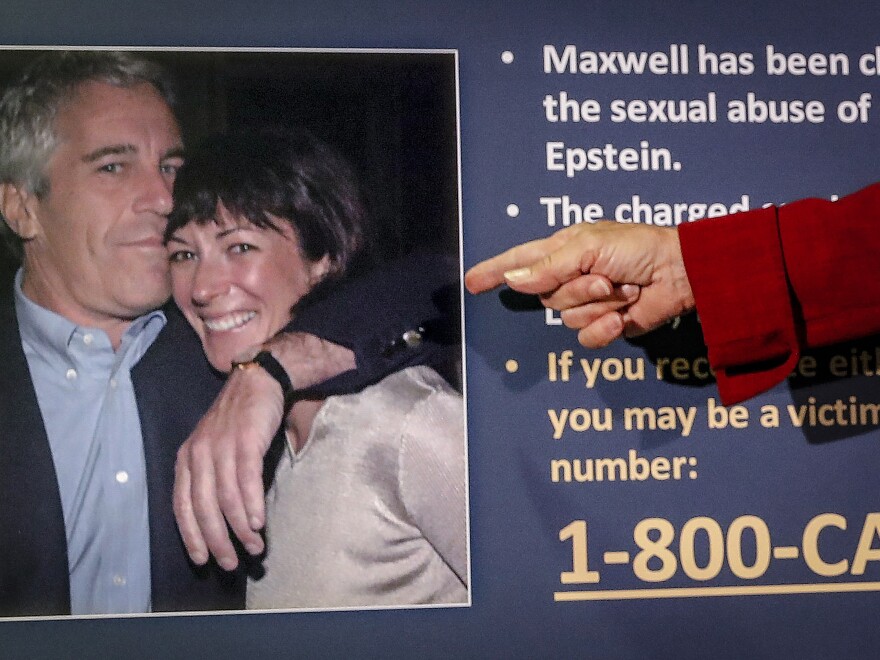Graham Platner, a neophyte to politics, began his campaign for the Senate this week with scathing criticism of Republican U.S. Sen. Susan Collins of Maine. He called Collins’ moderate persona a hoax and attempted to associate her with what he claims is a corrupt American political system that is rigged for the rich.
Platner’s main objective is to defeat Collins, but he and his team have hinted that they may be preparing to take on influential members of the Democratic National Committee.
Platner spokesperson Joe Calvello wrote on X Tuesday that if national Democrats are serious about winning over the male voters they have been losing, they will back Graham for the Senate. He is the solution. The governor, who is 77 years old, is not the solution.
Gov. Janet Mills is that 77-year-old. Although she hasn’t made up her mind to run, Calvello mentioned that the national Democrats had selected her as their top candidate to challenge Collins. If they win, the Maine U.S. Senate race may be thrown into a wider battle over the course of a Democratic party that is losing support in Washington, D.C., and that is seeing a drop in the percentage of American voters who identify with it.
When questioned about Mills’ possible candidacy, Platner responded, “I’m staying in the race.” Running the same old, stale playbook is not going to succeed, in my opinion.
“I think there’s a well-founded anti-establishment angst in the country,” he continued. People believe they are not represented by the system, and they are completely correct. Furthermore, I believe that selecting or sending candidates who are part of the political establishment, regardless of their personal qualities or the causes they have supported, is, in many respects, a true liability at the moment.
Given that Platner was largely unknown outside of the local political activists who had previously attempted to get him to run for the Maine Legislature, some may view his remarks about challenging the Democratic establishment as presumptuous. However, on launch day, the little-known oyster farmer and veteran of the military from Sullivan, which has 1,219 residents according to the U.S. Census, made a tremendous impression as he attempted to channel the urgency and rage that were sweeping through the vast majority of voters.
The New York Times, Politico, and national broadcasters lined up for Tuesday’s campaign kickoff after Calvello, who worked on Sen. John Fetterman’s successful 2022 campaign, secured Platner’s profiles and coverage.
Platner’s first ad was created by Morris Katz, a 26-year-old strategist and ad guy employed by Zohran Mamdani, the unexpected New York City mayoral candidate who defeated establishment choice Andrew Cuomo in the Democratic primary. To a soundtrack reminiscent of a GMC truck commercial, the campaign kept Platner in T-shirts and wetsuits while he swung kettlebells, split wood, and rose from the deep with oysters, rather than dressing him in L.L. Bean costumes.
Super butch? Yes. Calvello, who would subsequently assert that the premiere video received 2.5 million views in a single day, said it was also quite successful. Similar spikes were seen in Google searches for Platner. Platner stated that he intends to launch a campaign for a political movement that heavily relies on town halls and retail politics.
As one might anticipate from a campaign supported by national Democrats, and more especially the Democratic Senatorial Campaign Committee, or DSCC, it was a professional rollout.
However, it has been reported that the DSCC, which is led by Democratic senators, is awaiting Mills. The governor appears undecided about running and not in a rush to decide.
She recently stated, “Look, I wasn’t born with a strong desire to be in Washington, D.C., any month of the year.” Additionally, there is some chaos going on there. It’s not something that anyone would want to jump right in and participate in.
When Mills’ national prominence rose following her altercation with President Donald Trump in February, she was concentrating on serving out her last term as governor. Mills’ act of disobedience was swiftly seized upon by national Democrats, who were reeling from the 2024 election and lacked the strategy and actual authority to oppose Trump 2.0. They used her likeness and the phrase “see you in court” to gather money for their numerous campaign committees.
Since then, the DSCC has been working to get her to run against Collins.
It would be difficult to defeat Mills. When former governor and Republican firebrand Paul LePage attempted to run for office again in 2022, she comfortably defeated him. She barely lost to LePage by two percentage points in the Trump-friendly 2nd District, but she won by landslides in Maine’s more liberal 1st Congressional District.
Nevertheless, there are concerns that go beyond Mills’ readiness to run. In November, the two-term governor will turn 78. She will join a DSCC recruitment class that The Atlantic recently said had one thing in common: They’re old if she runs.
Given that Collins will turn 73 in December, Mills’ age might not matter much in a showdown. However, it may be in a Democratic primary where there are contenders like Jordan Wood, 35, and Platner, 40. Although there are four other Democrats in the race, only one of them, Tucker Favreau, raised any money as of the most recent campaign finance reporting period. Both have stated that they will remain in the race even if Mills enters.
The DSCC can use endorsements to pressure candidates it hasn’t chosen to resign, which can deprive rivals of funding and other support. The DSCC and EMILY’s List, which supports female candidates who defend abortion rights, did just that in 2019 when they endorsed former Maine House Speaker Sara Gideonal almost immediately after she declared her intention to run against Collins.
With a record $75 million, Gideon easily won the Democratic primary. Collins won by more than eight percentage points despite trailing in the majority of polls until election day. Nearly $15 million remained unused at the end of Gideon’s campaign, and she had no incentive to spend it. Campaign advertisements were already overflowing Maine’s airways and media market.
Should Mills enter the contest, the DSCC might make a similar move. In order for its candidate, U.S. Rep. Josh Turek, to run unopposed in the primary, it reportedly forced U.S. Rep. J.D. Scholten to withdraw his Senate race recently—a move known as “clearing the field.”
However, given the current political climate, there are indications that Democratic primary voters may rebel against field clearing. According to polls, the Democratic party is currently unpopular, even among Democrats themselves. Many Democrats believe the party is ineffectual and weak, according to a July survey conducted by the Associated Press and the NORC Center for Public Affairs Research.
It appears that Platner’s campaign is relying on the idea that Democratic primary voters will prefer an alternative strategy. Platner attacked the party’s fundraising efforts to combat Nazism on Wednesday.
We’re not fools. In a widely circulated Facebook post, he added, “Everyone knows most of them aren’t doing jack (expletive) right now to fight back.”
Steve Mistler, the head of the State House bureau, wrote and Andrew Catalina, the news editor, produced Maine’s Political Pulse this week. Go to mainepublic.org/pulse to listen to the Political Pulse podcast or read previous issues.






